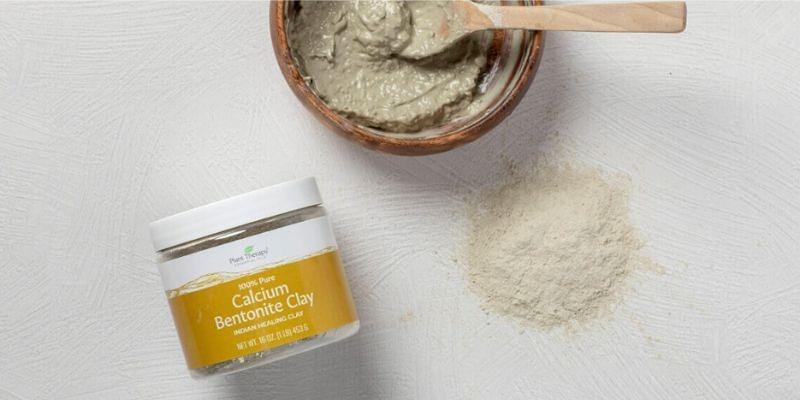Are you looking for an all-natural way to spice up your meals while receiving incredible health benefits? If so, cayenne pepper may be an ideal addition to your daily diet.
Not only is this bright and spicy vegetable a great source of flavour, but it can also provide numerous other advantages that range from increasing physical performance and boosting digestion to even relieving sore throats.
This blog post'll discuss how incorporating cayenne pepper into your diet can benefit your overall well-being. So read on as we explore these impressive nutritional values and possible medicinal properties of one of nature's most fascinating spices.
Overview of cayenne pepper and its many benefits
Cayenne pepper is a popular spice containing capsaicin, an active component with many health benefits. Capsaicin has anti-inflammatory properties and can help alleviate pain, reduce high blood pressure, improve circulation, boost digestion, aid in weight loss, regulate cholesterol levels and relieve headaches.
In addition, cayenne pepper has many other benefits, including improving skin health, aiding in respiratory problems, and helping to fight infections. It can make delicious dishes and be a powerful remedy for common ailments. With so much potential for good health, it is no wonder that cayenne pepper has become increasingly popular among health-conscious people.
How cayenne pepper helps aid digestion and reduces stomach pain

Cayenne pepper is a spice used in traditional medicine for centuries. It's known to help aid digestion, reduce stomach pain and improve circulation. Many active compounds in cayenne pepper provide these benefits, including capsaicin, vitamin C and B vitamins.
Capsaicin is the main active compound in cayenne pepper. It's a powerful antioxidant and anti-inflammatory, making it the perfect remedy for digestive issues such as stomach pain, bloating and indigestion. It also helps to stimulate digestive juices, which helps to break down food more quickly and efficiently.
Cayenne pepper also contains high levels of vitamin C, which helps to strengthen the immune system and reduce inflammation. It can also help with digestion by stimulating bile production in the liver, which helps break down fat molecules during digestion.
In addition, cayenne pepper is a good source of B vitamins, including thiamin (B1), riboflavin (B2) and niacin (B3). These vitamins are essential for proper digestion, as they help to break down carbohydrates, proteins and fats.
Cayenne pepper is a great way to aid digestion, reduce stomach pain and improve circulation. It's also beneficial for boosting immunity and reducing inflammation. Try adding it to your diet today and experience the benefits of cayenne pepper.
How it can be used to help reduce inflammation in the body
Cayenne pepper has been known for its anti-inflammatory properties, making it a great tool to reduce inflammation. Studies have shown that capsaicin, the active ingredient found in cayenne pepper, can help reduce inflammation and swelling by blocking certain pathways of pain transmission and helping to reduce the release of certain pro-inflammatory compounds.
This means that cayenne pepper can be a great addition to an anti-inflammatory diet, helping reduce inflammation and relieve painful symptoms. Additionally, capsaicin has been shown to help stimulate the production of endorphins, natural chemicals in the body that promote well-being and happiness.
How it can be used as a natural remedy for headaches, muscle aches, and joint pain

Cayenne pepper can be used to provide relief for headaches, muscle aches, and joint pain. It contains an ingredient called capsaicin, which has analgesic and anti-inflammatory properties. Capsaicin works by blocking the release of certain substances in the body responsible for causing inflammation and pain.
Cayenne pepper can help relieve those suffering from headaches, muscle aches, and joint pain by reducing inflammation and pain. Additionally, it has been shown to reduce the frequency of migraines in some people. To use cayenne pepper as a natural remedy for these issues, apply a small amount directly to the affected area or mix it with a carrier oil and massage it into the skin. It's important to note that cayenne pepper can cause a burning sensation on the skin, so be sure to test it on a small area before applying it more liberally.
The antioxidant properties of cayenne pepper and how they benefit the cardiovascular system
Cayenne pepper is a hot, red spice used in traditional herbal medicine for centuries. It is a member of the Capsicum family, which includes bell peppers and other chilli peppers. Cayenne pepper has powerful antioxidant properties that can help protect the cardiovascular system from oxidative stress and damage caused by free radicals. Studies have shown that consuming cayenne pepper can help reduce LDL cholesterol (the “ad” cholesterol) and triglyceride levels, as well as increase HDL cholesterol (the “good” cholesterol).
Cayenne pepper also contains capsaicin, which can relax the arteries, lower blood pressure, and improve circulation. These effects help reduce the risk of atherosclerosis, heart attack, and stroke. Therefore, adding cayenne pepper to your diet can be a simple yet effective way to promote cardiovascular health.
FAQs
Is it good to take cayenne pepper every day?
Yes, cayenne pepper is safe to take every day in moderation. It should be used as a seasoning or supplement and not taken in large doses. You should always consult your doctor before taking any supplement, especially if you have existing health issues or are on medications.
Can I drink cayenne pepper water every day?
Yes, you can. Cayenne pepper water is a healthy and nutritious beverage that can be consumed daily. It helps to improve digestion, reduce inflammation, and aid in weight loss. As with any supplement or food, it should always be taken in moderation and not overdone.
What are the disadvantages of cayenne pepper?
Some disadvantages of cayenne pepper include its potential to cause stomach irritation, heartburn, and even increased blood pressure. It is also not recommended for pregnant or nursing people because it may affect their baby's health.
Conclusion
The evidence suggests that consuming cayenne pepper can produce effective and positive health benefits. Cayenne pepper is rich in antioxidants which can help improve digestion, reduce inflammation, and promote cardiovascular health. It also has anti-pain benefits for headaches, muscle aches, and joint pain. With all its amazing potential health benefits, incorporating cayenne pepper into your diet or supplement routine is a great idea.




